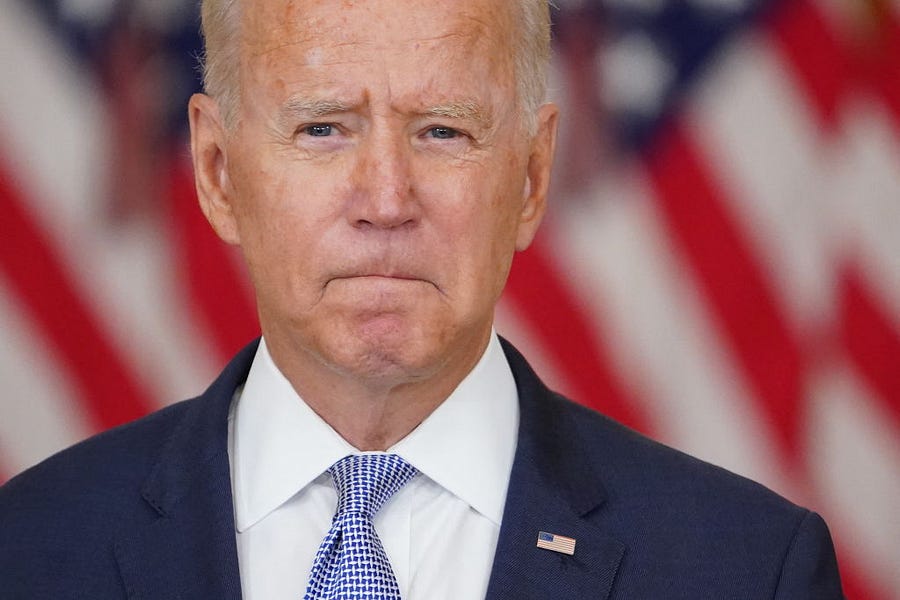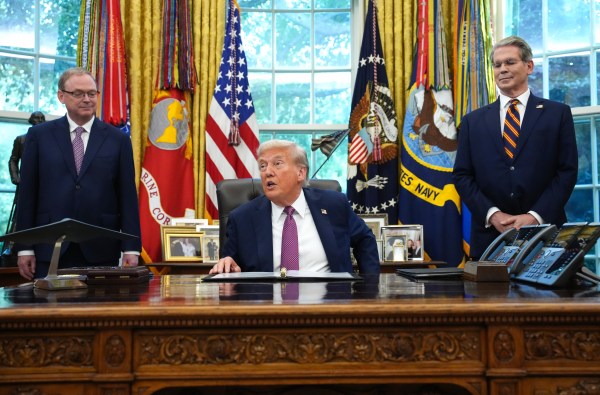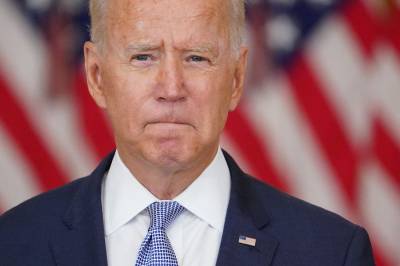It is difficult to find foreign policy failures as significant to the United States as the one we suffered in Kabul last weekend. American diplomatic, intelligence, and military personnel were routed by an enemy from whom we cringingly requested safe passage. Benghazi in 2012, Mogadishu in 1993, Beirut in 1983, Tehran in 1979, Saigon in 1975, and the Bay of Pigs in 1961 were all bad, but what happened in Afghanistan is magnitudes worse.
The closest parallel might be when Japan sank much of our Pacific fleet at Pearl Harbor and in the Coral Sea, ejected our forces from Wake Island and the Philippines, and landed in Alaska between December 1941 and June ‘42. But America fought back immediately after, winning at Midway, New Guinea, and Guadalcanal, so the analogy is inexact. There is no plan or will to reverse our losses in Afghanistan.
President Joe Biden made the decisions resulting in this debacle against the best military advice of the Defense Department. That is his clear prerogative as commander-in-chief, but he owns the results, despite his attempts to disclaim responsibility that would embarrass a newly minted corporal and his refusal thus far to address our country during the crisis.
There is bipartisan blame to go around. For Donald Trump’s terrible deal with the Taliban; Barack Obama’s halfhearted surge, the limited duration of which was announced to the enemy in advance; George Bush not sending our troops on a hot pursuit of al-Qaeda into Pakistan; and Bill Clinton passing up opportunities to kill Osama bin Laden.
Congress should have better investigated our Afghanistan and Pakistan policies over past decades instead of the partisan juvenilia that occupies them. Armed Services Committee hearings at which members focused on whether “critical race theory” is discussed at service academies or included on reading lists now seem even more jejune. Yet important questions remain ripe for congressional oversight.
Who authored inaccurate intelligence analyses reportedly predicting that Afghanistan’s government could hold for a year and a half, if not indefinitely—and on what basis? What was the State Department’s advice about embassy security, why did our diplomats take a rosy view of Taliban savages as negotiating partners, and how did the State Department so badly mishandle the special immigrant visa program for the 18,000 now-doomed Afghans who assisted us? What accounts for the failure of the U.S. military’s lavishly resourced train-and-assist program in Afghanistan, and were civilian policymakers misinformed about its shortcomings?
President Biden blames his predecessor for allegedly tying his hands in Afghanistan, but he hasn’t hesitated to break with Trump’s foreign policies in other areas, such as the Paris climate accords, Iranian nuclear agreement, or Nord Stream 2 pipeline. It was Biden’s call to withdraw a 2,500-man force that—while every individual loss is forever heartbreaking—had not suffered a combat loss in 18 months. We’ve kept troops in Germany, Japan, South Korea, the Balkans, Kuwait, the Sinai, and elsewhere under similar circumstances for decades.
Given the mayhem resulting from the president’s poor decision, if he were a prime minister, Biden would have to resign, as did Britain’s Herbert Asquith, Neville Chamberlain, and Anthony Eden did after similar military failures. This is especially true as terrorists sent from Taliban-controlled Afghanistan will soon again try to attack us at home.
The reason we haven’t suffered another 9/11 isn’t that al-Qaeda has changed its ways. Rather, its terrorists have been too busy dodging drones and special operators to plan mass-murder the way they did circa 2000. Those strikes and raids were usually staged from U.S. military bases in Afghanistan, based on information collected by intelligence officers collocated on those bases … which are now gone. So what can we do?
Our remaining military options must focus on strategic airpower, because foolishly abandoning Bagram and Kandahar Airfields had consequences. Special operations deep into denied territory pose logistical challenges: Operation EAGLE CLAW, to rescue American hostages in Tehran, ended in fire and tears. We cannot indefinitely keep an aircraft carrier in the Arabian Sea, as the USS Ronald Reagan is covering our Afghan withdrawal. Flattops are scarce, and their jets lack the range and payload to cross Pakistan, loiter over Afghanistan, and find and destroy many targets. Precision munitions do not grow on trees, and anyhow we now lack combat controllers on the ground to guide them. We can’t keep submarines needed to patrol the Pacific waiting to launch cruise missiles at individuals in Afghanistan, as Clinton did.
Demarches by Antony Blinken and finger-wagging by Jake Sullivan won’t deter the Taliban and al-Qaeda, who with deadly seriousness seek, through shocking acts of violence, to forcibly convert us all to eighth-century Islam. To protect the American people, now by default because of his decisions, Biden will need to use big bombers and dumb bombs—and accept the civilian casualties that attend their use, as did good Democratic Presidents Franklin Roosevelt and Harry Truman in fighting the fascist Germans and Japanese.
A further consequence is that leaders in Beijing, Moscow, Pyongyang and Tehran will now conclude that President Biden has poor judgment, that his National Security Council policy process is broken, or both. Adversaries will test us in Taiwan, the Baltic States, or regarding nuclear proliferation, and perhaps at the same time. Allies must doubt our resolve, given our feckless abandonment of Afghan partners. Our intelligence and military services need to be at “stand to”—awaiting enemy probes at dawn and dusk—and our diplomats need to be far clearer and firmer in defense of national interests.
I voted for Evan McMullin in 2016, served as a Trump appointee from 2017-18, and endorsed Biden in 2020 because of Trump’s manifest unfitness for high office. Most administrations struggle to handle first-year crises. The Biden administration needs to do a much better job at handling our next crisis, during which America may now stand alone.
Kevin Carroll served as an Army and CIA officer in Bosnia, Afghanistan, Iraq, and Yemen, and senior counselor to the House Homeland Security Committee chairman and secretary of homeland security.






Please note that we at The Dispatch hold ourselves, our work, and our commenters to a higher standard than other places on the internet. We welcome comments that foster genuine debate or discussion—including comments critical of us or our work—but responses that include ad hominem attacks on fellow Dispatch members or are intended to stoke fear and anger may be moderated.
With your membership, you only have the ability to comment on The Morning Dispatch articles. Consider upgrading to join the conversation everywhere.